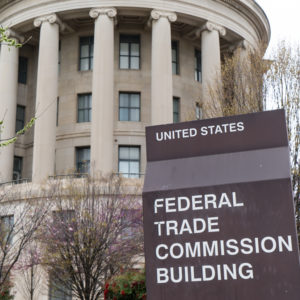Amid government objections, a court has approved the merger of Imperial Sugar and U.S. Sugar Corp. Despite rejection of the big-is-bad philosophy, this case demonstrates attempts to move the philosophy beyond tech.
Since the 1970s, U.S. antitrust regulators have applied the consumer welfare standard (CWS) to determine whether an action by a corporation violates antitrust laws. Born out of an attempt to standardize the government’s approach to antitrust, it established that the effect on consumers was the ultimate test for legality; lower prices and higher-quality goods were the goals.
This standard came under fire by the chair of the Federal Trade Commission, Lina Khan, when she critiqued the pro-consumer focus on prices in her article “Amazon’s Antitrust Paradox.”
Khan is not the only commissioner to criticize modern antitrust law. Alvaro Bedoya gave a speech criticizing the focus on efficiency in antitrust enforcement, further making a case for a move away from the CWS as the standard for antitrust enforcement.
Central to this new approach is the idea that the size of businesses can influence competitiveness regardless of behavior and the effect on consumers. This philosophy is reflected in more aggressive enforcement of mergers that would not have been challenged in the past and new draft guidelines by the FTC and Department of Justice that do not mention the consumer welfare standard.
Although the shift in antitrust enforcement has not been successful in court, regulators have been working on expanding their big-is-bad philosophy beyond big tech and to other markets, including food.
Justice tried to undo the merger between U.S. Sugar Corp. and Imperial Sugar, arguing that it would concentrate the sugar market in the southeast and that the increased transportation costs would harm consumers. Federal courts blocked the attempt to undo the merger because the government had made errors in defining the market and ignored other sources of competition that would preclude United Sugar from becoming a monopoly in the southeast. This judgment is another example of how courts are undeterred in maintaining the CWS and are rejecting fresh attempts at redefining competition to a more limited model.
While the Imperial Sugar block was stopped, another potential merger is in the FTC’s crosshairs. Grocers Kroger and Albertsons have announced a merger that is drawing scrutiny from government officials. The FTC is in the process of reviewing the merger. The drive to make “big is bad” the standard for antitrust shows no signs of slowing down.
A once obscure law from 1936 called the Robinson-Patman Act has come into focus as the FTC looks for ways to implement its new philosophy. The Robinson-Patman Act prohibits companies from selling goods at a lower price to different sellers. While it was designed to help small businesses, assessments since then have found that it did little to protect small businesses and instead raised consumer prices by discouraging discounts.
The Robinson-Patman Act has not been enforced in recent decades, partly because the switch to the CWS emphasizes efficiency and lower prices and the difficulty in proving injury to competition with this law. Despite the issues that led to the act becoming unpopular, Commissioner Bedoya argued in favor of using the act.
The big-is-bad doctrine has become the uniting motto of those who control the levers of power. While their most prominent cases have had to do with big-tech companies and have yet to be successful, they are expanding their efforts to other industries, including food. At a time when inflation is making it harder for families to put food on the table, a move toward a legal doctrine that drives up prices for consumers is not fair or compassionate.


